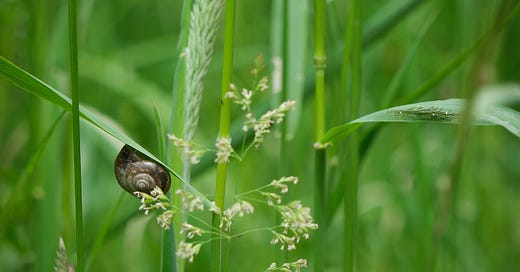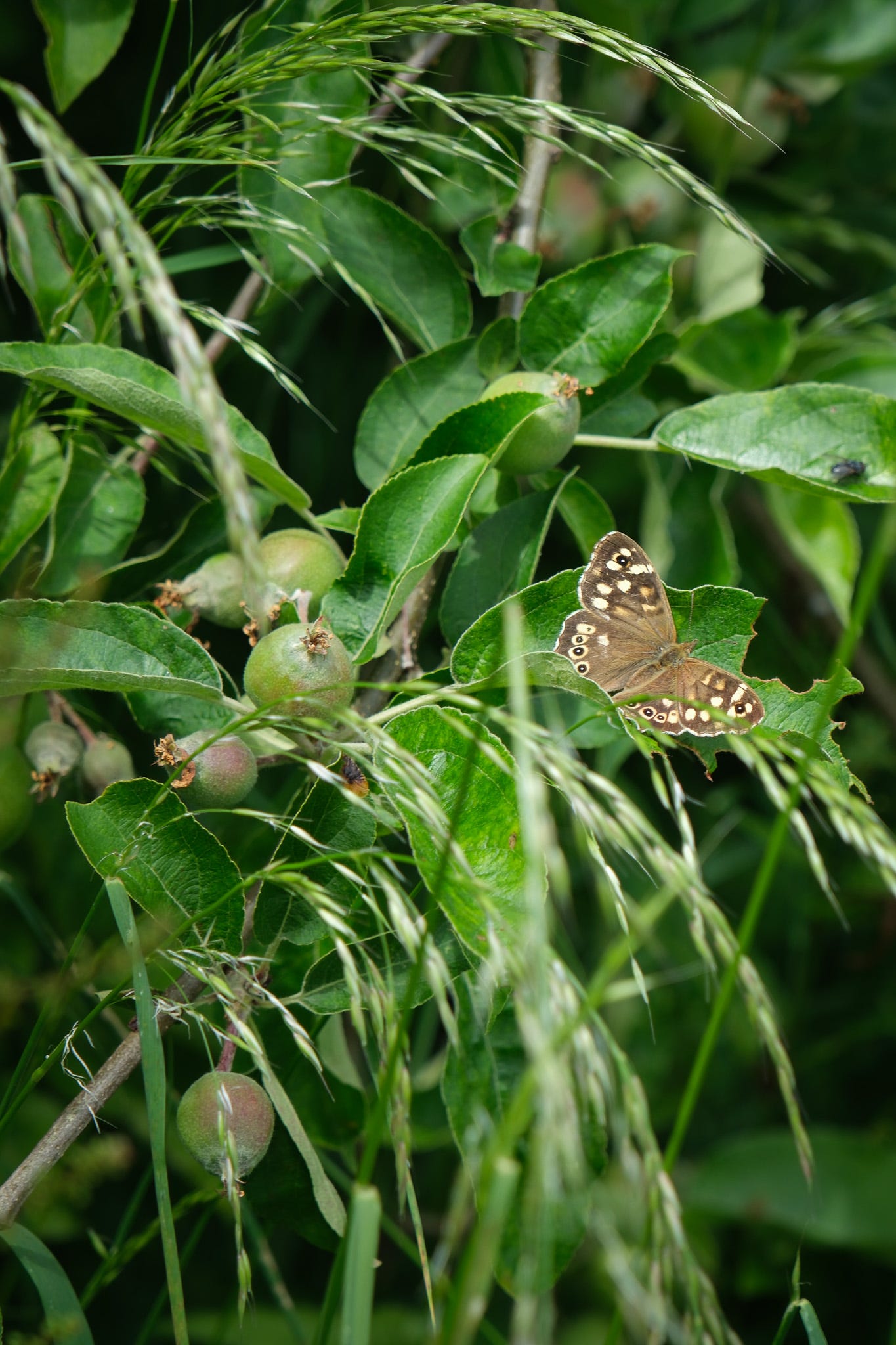Reading Michael Pollan’s ‘The Botany of Desire’ reminded me just how much marijuana growers are to thank for our knowledge of horticultural breeding, nurturing, and technology.
We all know that we have generations of illegal cannabis growers to thank for the ready availability of grow light, but of course much more beyond lighting was learned by these subversive botanists, who had a commercial interest in a fast and floriferous, forced harvest.
Forced. The literal definition of which is ‘happening against someone's wishes and without them being given any choice’.
One of the things I notice more and more about the horticultural industry is how it is increasingly discordant with the rhythms of nature. If I am troubled by the appearance of sunflowers outside a local florist in February, then I ought to be similarly troubled by the appearance of flowering plants out of season in garden centers.
And then, at Chelsea, one potters around thinking ‘Gosh, my [insert plant] is still only a tiny seedling and here theirs is in full bloom’.
But of course. Because behind these beautiful, dainty plants is a vast industrial complex. Polytunnels the size of cathedrals, with hundreds of yards of grow lights, heated mats, and irrigation - false sunlight, rain, and heat. False weather. False environment. How is the poor plant supposed to know?
And it’s not like I don’t buy the plants they produce. Nor do I eat locally and seasonally, although I am trying to make more effort to do so.
So where do we draw the line?
Part of why I love gardening and find it therapeutic and restorative is because it forces me to live - day to day, moment to moment - through the seasons.
I don’t have a greenhouse, so my seedlings are crowded onto trays and moved from outside to inside depending on the weather (and particularly the wind which is severe at Daisy Barn and is no friend to the baby seeds in their little pots - they’re scattered halfway across the next field if you don’t find a way to weigh them down).
And does it matter? Should it bother me to see commercially grown plants ahead of their natural time? Should I be paying more attention to where the plants I buy are grown?
Naturally one turns to seeds for a ‘pure’ start, but where do the seeds come from?
I listened to a fascinating episode of ‘Talking Gardens’ on my drive down to DB on Tuesday. The show has a sort of Desert Island Discs-style format, where professional gardeners are asked to imagine a dream garden (don’t even get me started on this - the number of guests she has on who do not play the game properly drives me absolutely nuts. Luckily Substack’s own
understood the assignment and did a great job in her episode recently).Anyway, in the episode in question Stephanie Mahon (editor of Gardens Illustrated) interviewed Professor Emeritus James Hitchmough. He is a prominent horticultural ecologist. He has made the study and teaching of botanical environments and sustainability his life’s work. And I was struck by something he said:
“I made a long list of the things I thought would be really useful [South African] plants for here in a climate change future and then I went to find them all … I was going twice a year and spending [time] traveling, basically driving, stopping, driving, stopping…. so drove tens of thousands of kilometers with some botanists there”.
Do you see it?
Then I went to look at the piece Gardens Illustrated did on the Professor Emeritus’ garden in Sheffield. The article begins with this:
“Professor James Hitchmough is a hard man to get hold of. Apologetic emails from South Africa, China, the Orkney Islands or Kyrgyzstan explained he was photographing plants in high-altitude meadows.”
I don’t mean to single out the Professor Emeritus here because we all do it, but there does seem to me to be an intense irony inherent in perpetually flying around the world and driving tens of thousands of kilometers in an effort to understand - and teach - sustainability.
I heard it argued recently (I can’t remember where or by whom) that the water shortages caused by energy-draining AI data centres were a price worth paying, because AI would get us to the solutions to climate change faster.
I have friends who would never dream of being seen holding a plastic bottle of Evian instead of cradling their treasured reusable water bottle, but who think nothing of buying cheap flights to Europe several times a year.
And what is my role and responsibility here?
I haven’t been on a plane in years (partly due to a crippling fear of flying) and feel guilty every time I get in my car to drive anywhere, and every time I fill it up with petrol.
I feel guilt when watering my garden in dry spells, and if I ever slip a recyclable container into the ordinary rubbish because the recycling bin is full. But I wear synthetic fabrics on the regular and frequently drive my car in London despite the adequate (albeit often useless and occasionally unpleasant) public transport.
If it seems that this post is struggling to make a succinct point and reach a useful conclusion it is because so am I. What difference does it make if I decide not to buy out-of-season cut flowers, potted plants, and produce? Vast industries (which of course innately means many, many individual incomes) rely on pushing nature forward, growth by force. As I said in my last post, my aim is to tread lightly upon the earth. But why? Apart from virtue signalling and self-soothing, what does it achieve?
All I can really say at this stage is that I know I feel better when I think that I am working in tune with nature, and when I am nurturing a plant to grow and flourish at its own pace. It forces me to be in season. Because I am deeply (clinically) impatient, and it forces me to slow down, pay attention, sync up, settle down, and stop rushing through life like a seed under a grow light. That’s how I lived for so long, and I grew into one sickly (though sadly not very leggy) plant.







All my own thoughts put so succinctly. You are an amazing writer.
So many questions with complex answers. Really appreciate the thoughtful nature in which you unpick them.
I take a slow nature led approach to my garden (no greenhouse) but often find myself wondering why others gardens look so far ahead with bigger blooms and more fruit/veg. A good reminder to get off the comparison merry go round and be grounded in what I am doing!